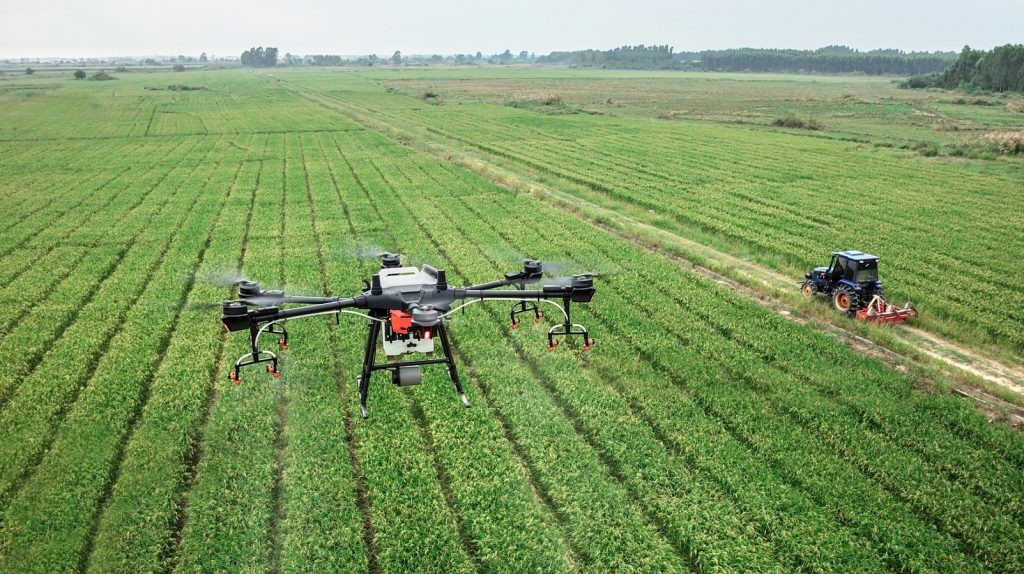
A Modern Aerosol Sprayer in Action
In today’s modern world, technology seems to be taking the spotlight, making it appear as though we are drifting away from our agricultural roots.
However, with the growing challenges facing the agricultural sector, Agri-Tech is becoming increasingly necessary to address these issues.
Agriculture remains the lifeblood of many in Kenya and is a key pillar of the country’s economy. Yet, climate change and global warming have made farming unpredictable.
READ Safaricom to Invest Sh66 Billion in AI Infrastructure Across East Africa
According to the Food and Agriculture Organization (FAO) of the United Nations Kenya, agriculture contributes 33 percent directly to the Gross Domestic Product (GDP) and another 27 percent indirectly through linkages with other sectors.
The sector employs more than 40 percent of the total population and over 70 percent of Kenya’s rural population.
As a result, both farmers and consumers are seeking healthier, more sustainable alternatives to conventional agriculture rooted in traditional practices but guided by modern awareness.
Blending Traditional Farming with Modern Innovation
Bio-agriculture is an integrated approach to farming that focuses on natural processes and the well-being of the entire ecosystem. It emphasizes reducing external inputs and maximizing the use of natural resources and biological processes to boost productivity and sustainability.

This form of agriculture avoids synthetic fertilizers, pesticides, and genetically modified organisms (GMOs), relying instead on biological methods including biotechnology to enhance crop health, improve soil fertility, and increase yields while minimizing environmental impact.
When we think of bio-agriculture, we often envision natural compost, crop rotation, organic pest control, and seed preservation. Conversely, technology evokes images of machines, mobile apps, and satellites.
However, these two worlds are not at odds they complement each other. Both are essential to making organic farming more efficient, sustainable, and accessible.
Tech Tools Empowering the Organic Farmer
Digital innovations now empower farmers with real-time data and insights, helping them reduce chemical usage while increasing productivity, transparency, and income.
Tools such as mobile apps, sensors, drones, and blockchain allow farmers to monitor soil health, manage pests naturally, track weather changes, and connect with markets more effectively.
Precision farming is one technological advancement in agriculture that plays a vital role in organic farming. It helps safeguard soil health a cornerstone of bio-agriculture while reducing waste, conserving water, and increasing yields without relying on chemicals.
Today’s organic farmers are leveraging soil sensors and weather monitoring systems to make data-driven decisions. These tools help determine optimal irrigation timing and quantity, guide crop rotation strategies, and inform compost application.
Aerial observation is another innovation revolutionizing traditional, labor-intensive inspection methods. It provides real-time, high-resolution data visualizations, acting as a form of “nature surveillance.”
While drones in conventional farming are often used to spray chemicals, bio-farmers now use them to scout fields, monitor crop health, detect diseases early, and observe biodiversity.
ALSO READ How Digital Tools Are Transforming Agriculture In Kenya
Technology has also transformed how smallholder farmers access information. Through mobile apps and SMS platforms, tools like iCow and M-Farm are empowering small-scale organic farmers in Kenya to manage livestock naturally, receive weather updates, and connect with buyers who value organic produce.
One of the biggest hurdles in organic farming is earning consumer trust, especially around the use of synthetic inputs. Blockchain plays a crucial role in this regard.
Its secure and transparent ledger records every stage of food production from seed to shelf helping organic farmers simplify certification processes and access premium markets that appreciate ethical and sustainable practices.






